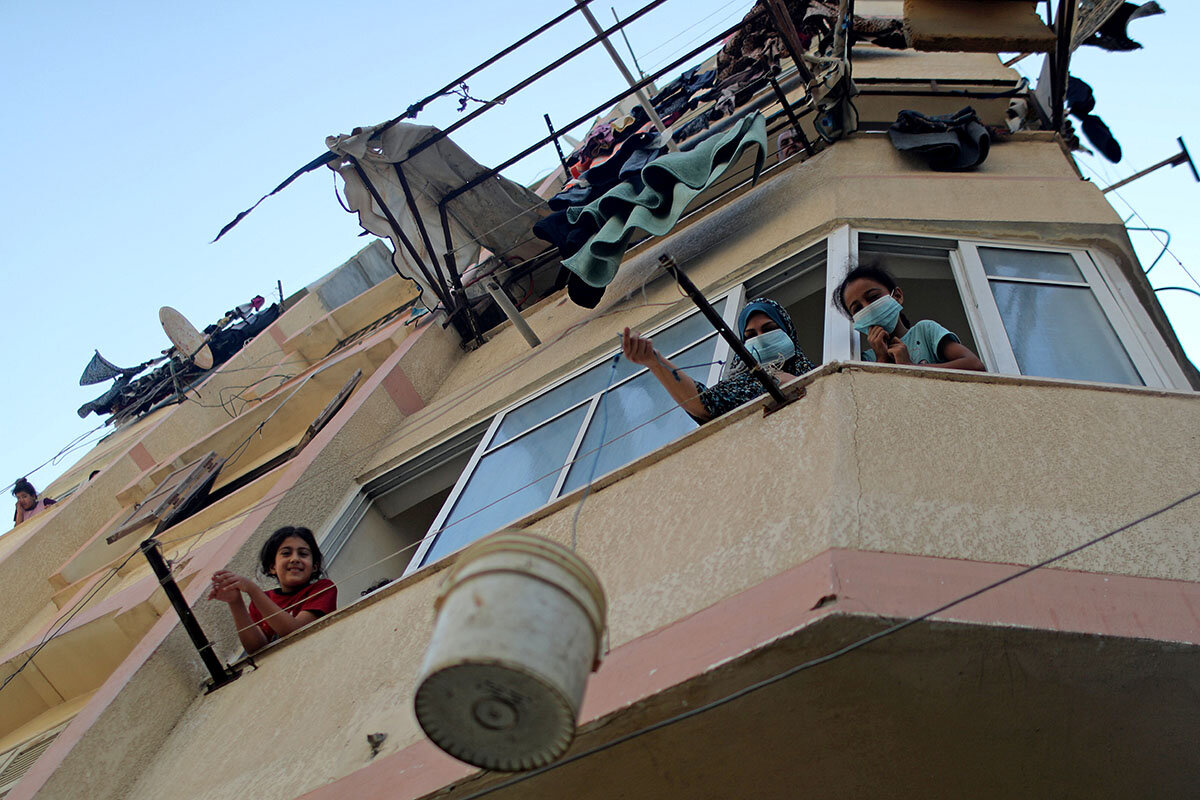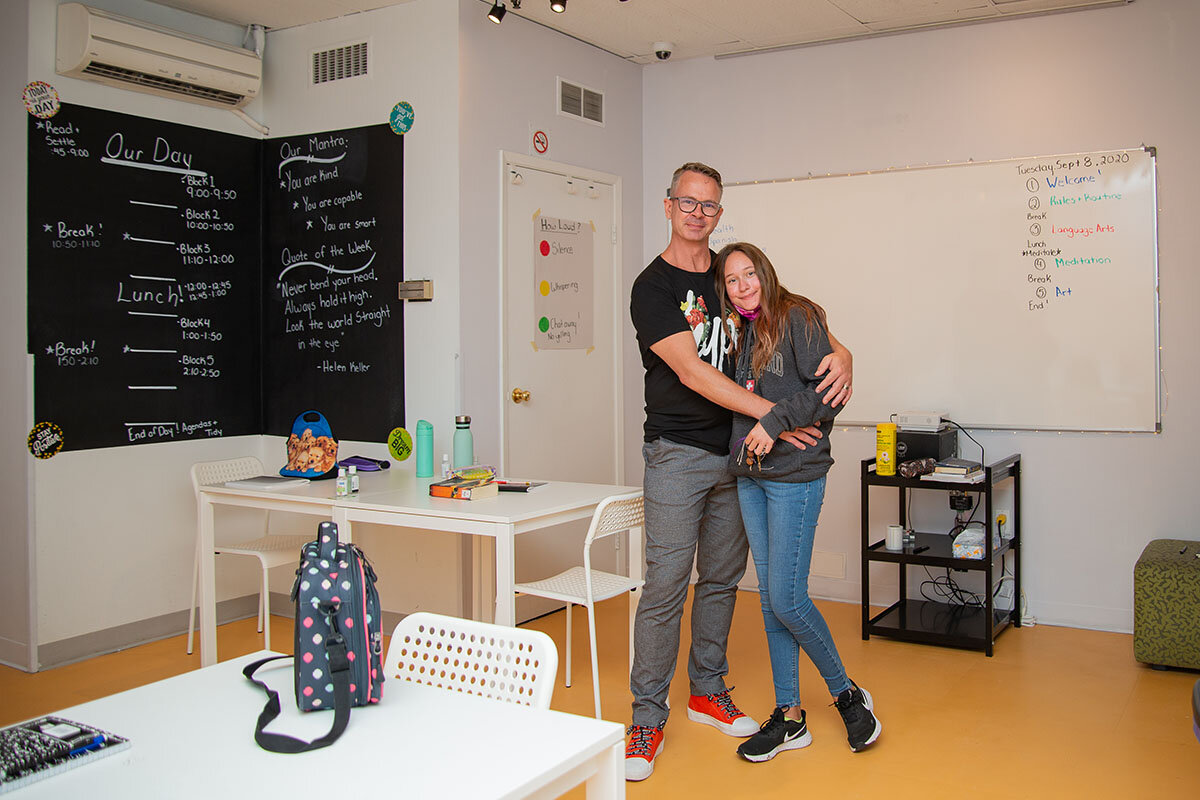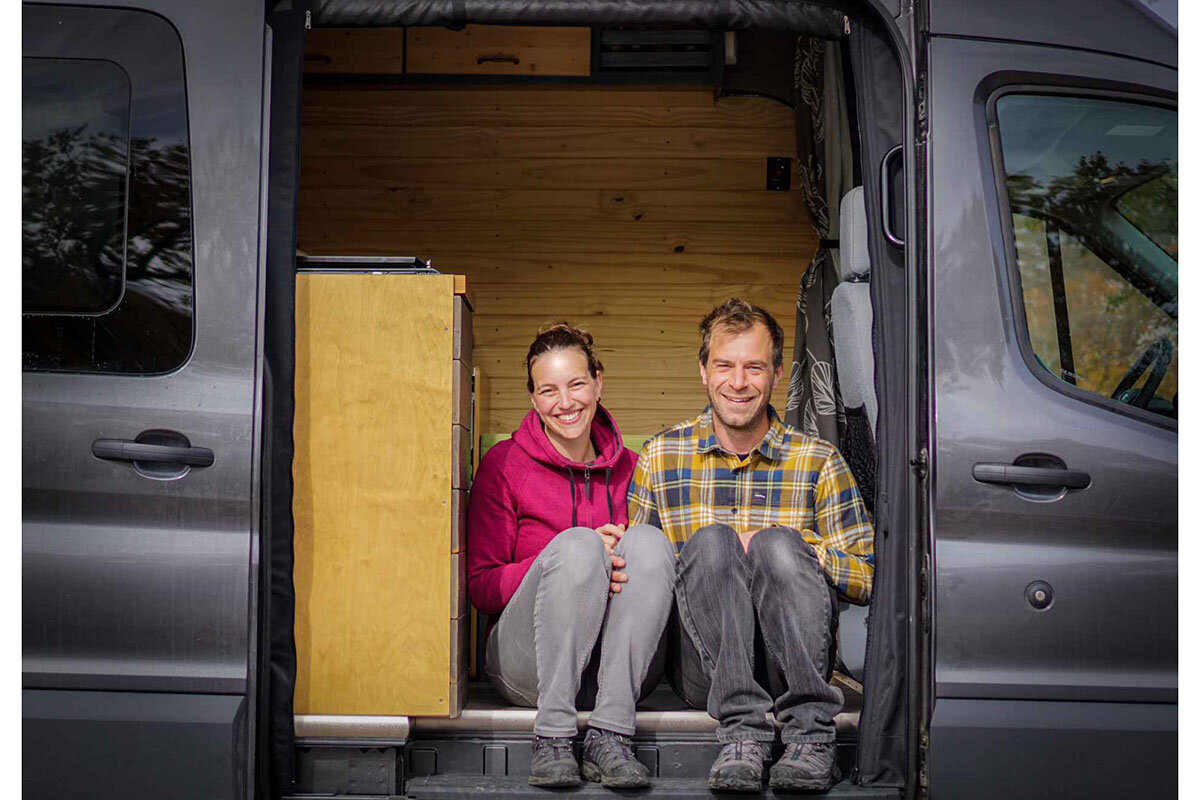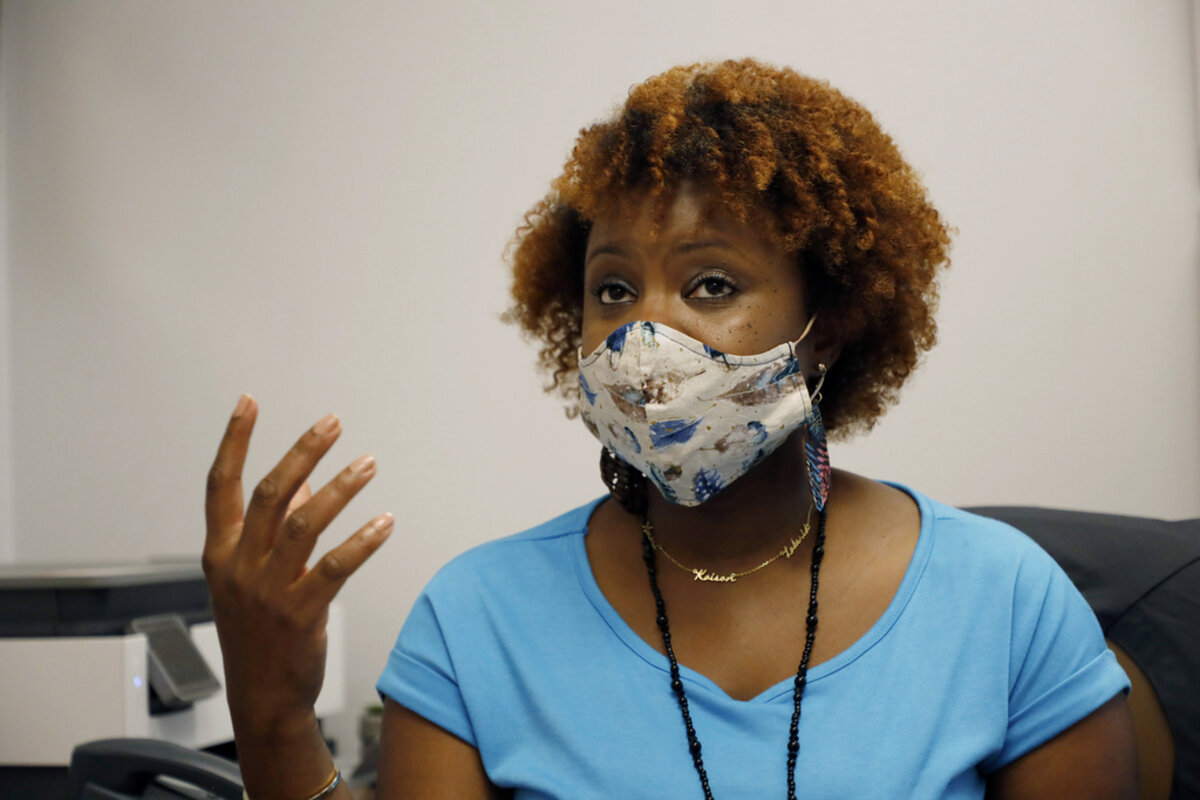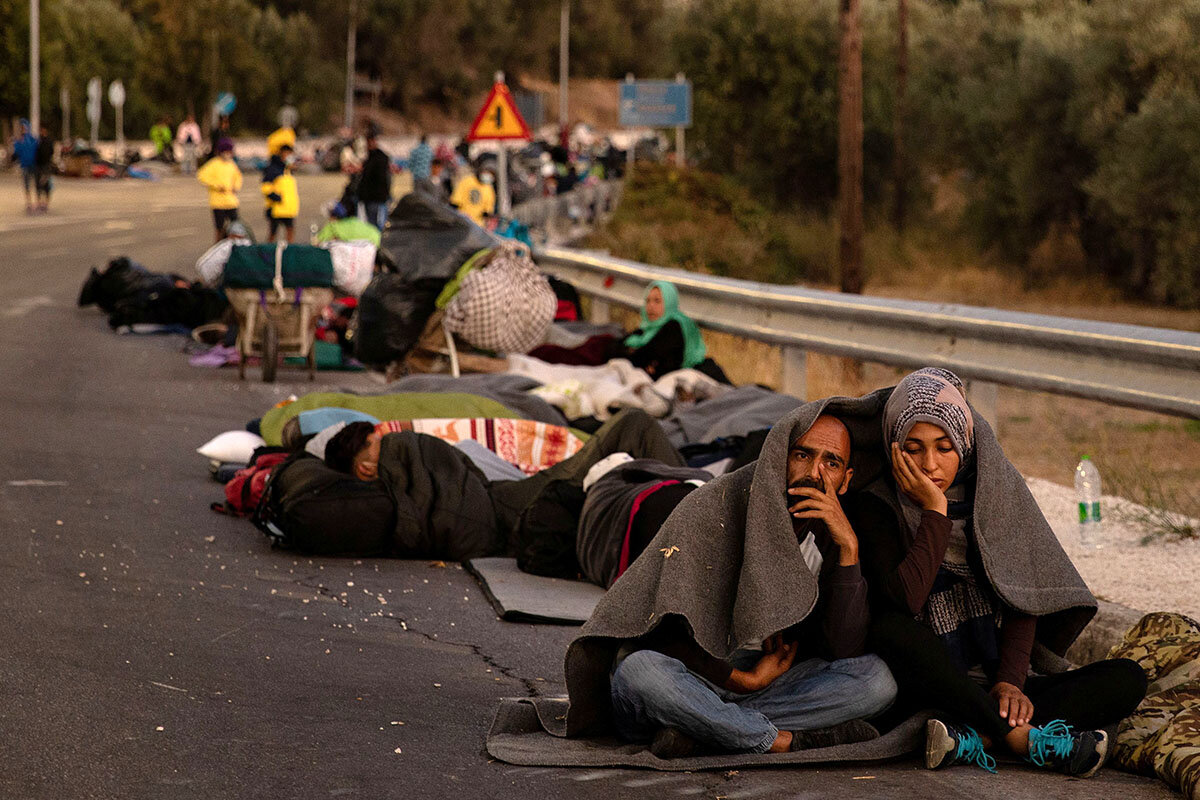Central banks around the world have taken dramatic steps to support economies during the pandemic. The balance between stimulating growth and guarding against inflation isn’t an easy one.
Monitor Daily Podcast
- Follow us:
 Peter Grier
Peter Grier
“I’m a cheerleader for this country.”
That’s what President Donald Trump told reporters on Wednesday, defending his intentional downplaying of the dangers of the coronavirus, as reported in Bob Woodward’s
“I don’t want to create panic. ... We want to show confidence. We want to show strength,” President Trump said.
Surely part of a president’s job is calming and inspiring citizens. Franklin Delano Roosevelt did that when he told a nation battered by depression that “the only thing we have to fear is fear itself.”
But there’s a fine line between cheerleading to pick people up, and misleading them about dangers ahead. Mr. Trump's now facing a furor of criticism that he stepped over that line.
On Feb. 10, for example, the coronavirus might disappear by April.
“I think it’s all going to work out fine,” he told a rally in New Hampshire.
Three days earlier, speaking with Mr. Woodward, he hadn’t sounded so confident.
“This is deadly stuff,” Mr. Trump said then.
Cheerleading is only part of a president’s job. They’re supposed to mobilize executive action, negotiate with congressional leaders, coordinate state actions, jawbone business leaders, and so on – all while running America’s relations with the rest of the world.
On the coronavirus President Trump says he’s done a lot. But many critics and experts have faulted the U.S. federal response as slow and disjointed, with lack of leadership a primary problem.
F.D.R. understood the totality of the president’s job. In he outlined what he saw as the causes of the nation’s economic problems, and vowed to address them soon in a special session of Congress.
“This nation asks for action, and action now,” he said.






